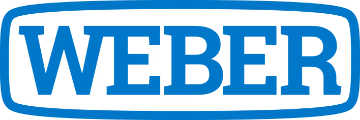About Silicon Austria Labs GmbH
Silicon Austria Labs (SAL) is Austria’s leading research center for electronics-based systems—the technological backbone of digital transformation. At its locations in Graz, Villach, and Linz, SAL conducts cutting-edge research in microsystems, sensor technology, power electronics, intelligent wireless systems, and embedded systems. The innovations developed here enable progress in environmental protection, health, energy, mobility, and safety.
Founded in 2018, SAL employs around 320 people and works closely with public institutions, companies, and universities to strengthen Austria’s position in key technology sectors.
The Challenge Before Q.wiki
Before we introduced Q.wiki in 2021, we managed most of our content via SharePoint using the VALO interface. While we had the basics—an organizational structure, policies, and forms—process documentation was only created sporadically. Often, it was noted down during meetings and stored either within policy documents or in unrelated folders.
This led to a lack of clarity: Where was the latest version stored? Which version was current? In some cases, important information was no longer findable at all.
Why We Chose Q.wiki
After thoroughly evaluating several leading providers, Q.wiki stood out. It offered the best value for money and came with practical, solution-oriented support. Our sales team even carried out a total cost of ownership (TCO) comparison, and the result was clear: Q.wiki had the edge.
What really won us over was the intuitive user interface and the concept of involving all employees in shaping knowledge and process management.
What’s Changed Since We Started
Our process documentation used to be scattered and inconsistent. Today, it’s streamlined and centralized. While some guidelines are still maintained in SharePoint, we’ve migrated all process-relevant content into Q.wiki—making documents significantly leaner and easier to use. That’s something our employees have really appreciated.
After receiving training from the Modell Aachen team, we were able to independently adapt content and manage permissions—without needing any programming skills. And whenever more complex questions arise, the support is fast and competent.
With Q.wiki, we’ve created a single source of truth for mapping and continuously improving our processes—collaboratively and company-wide. Instead of documenting processes randomly, we now work systematically. We started with support processes and have since added core processes to Q.wiki as well. That step significantly boosted adoption.

In January 2024 alone, we recorded:
These numbers speak for themselves: our process landscape has become active, dynamic, and much more agile. What’s more, many changes now come directly from the process owners themselves—easing the workload for the central Q.wiki team.
What We’ve Achieved So Far
Thanks to Q.wiki, we’ve already partially automated three key processes:
But perhaps our greatest success is this:
Process management is now a real conversation topic across the company.
We’re seeing more collaboration, more critical thinking, and more initiative when it comes to making workflows leaner and more efficient. With an interactive management system in place, we’ve become more customer-focused—and less hierarchical.
For us, Q.wiki has absolutely paid off. Information is easier to find, processes run more smoothly, and teams are more engaged than ever before.


"Quality is the one thing that’s non-negotiable."


“It’s not certificates that make processes successful — it’s our employees. And 86% of them use Q.wiki every month.”


“Regulatory processes used to be a necessary evil. Today, they create real value for our workforce.”


